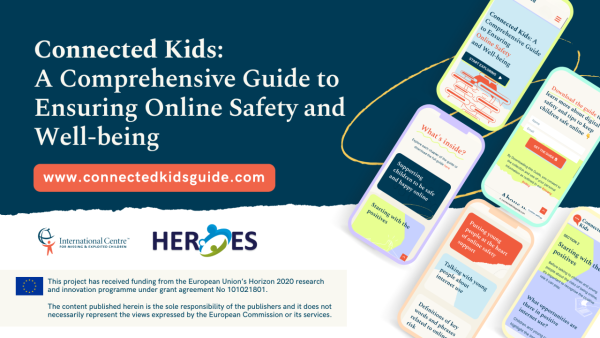Talking with young children about staying safe online
It can be challenging for parents and caregivers to navigate conversations with young children about their safety, exploitation and grooming. Below are some useful resources to help:

The National Society for the Prevention of Cruelty to Children (NSPCC)(external link) have developed Talk PANTS - a way to help children keep safe from sexual abuse.
A simple conversation can make a BIG difference, and that’s what Talk PANTS is all about. This approach supports parents to help their children understand their body belongs to them, and they should tell a safe adult they trust if anything makes them feel upset or worried.
Guide for protecting children and young people online

The International Centre for Missing & Exploited Children have developed a guide that supports adults to better understand, prevent, and, respond to online abuse, including sexual harassment, grooming, sexual abuse and exploitation, image-based abuse, and others.
This guide provides adults with tips on how to:
- discuss internet safety and some difficult topics with children
- develop a climate of trust so if children experience online harms they can come to you
- recognise abuse and seek help if needed.
International Centre for Missing & Exploited Children - Connected Kids Guide(external link)
Book resources
'The Wolf and the Hocus Pocus', is a children's book written by New Zealand author Avril McDonald and is designed to encourage children to speak out and find help if they experience any form of abuse.
The book is aimed at 4–7-year-olds and aims to break the culture of silence that traditionally surrounds sexual and other forms of abuse in New Zealand and encourage children to seek out a trusted adult until they find one who believes them and will act on their behalf to help keep them safe and secure. The book is also available as a digital app where children can interact with the story and characters.
- Feel Brave - The Wolf and the Hocus Pocus Book(external link)
- The Wolf and the Hocus Pocus app(external link)
‘I said No! A kid-to-kid Guide to Keeping Private Parts Private’ uses child-friendly language and illustrations to help adults give children guidance about setting boundaries for their private parts.
The Australian Federal Police in partnership with the Australian Centre to Counter Child Exploitation have developed a new children’s picture book called ‘Jack Changes the Game’ to support parents, carers, and teachers in discussing some issues around online safety. The book, aimed at 5-8 year olds, explores a child’s perspective on online grooming, the challenges they face and why it’s important to talk to a trusted adult if they encounter any problems online.
Talking with teens about child sexual exploitation
Its important to talk with young people about child sexual exploitation and online safety risks so that they know it's ok to reach out for help. We know it can be difficult to navigate these conversations so below are some topics and resources to help guide you:
- Ensure your teenagers understand consent, that it’s wrong for other people to touch, or do anything sexual to them, without their clear consent. Let them know that if anything happens that it isn’t their fault, and they should tell you or another trusted adult what has happened. For more information visit Lets Talk Consent(external link).
- For a lot of young people sharing nudes can be a way of building intimacy with another person that they trust. Remind them that it’s not ok for someone to pressure them into sending nudes or for someone else to copy or share their nudes without their consent. See Sending or Receiving Nudes for more help and support.
- Netsafe have lots of information on their website including conversation starters for parents and caregivers around a range of topics including pornography, online safety, and social media: Engaging Young People in Online Safety Discussions(external link)
- eSafety Australia have helpful information for parents about managing difficult conversations around child sexual exploitation and grooming on their website: Advice on Grooming and Unwanted Contact(external link)